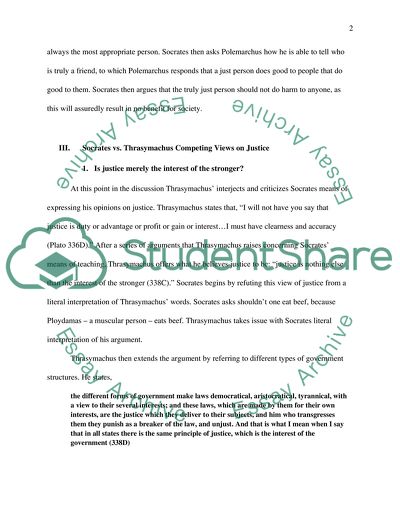Cite this document
(“Socrates and Thrasymachus: On Justice Essay Example | Topics and Well Written Essays - 1250 words”, n.d.)
Socrates and Thrasymachus: On Justice Essay Example | Topics and Well Written Essays - 1250 words. Retrieved from https://studentshare.org/philosophy/1562243-socrates-and-thrasymachus-on-justice
Socrates and Thrasymachus: On Justice Essay Example | Topics and Well Written Essays - 1250 words. Retrieved from https://studentshare.org/philosophy/1562243-socrates-and-thrasymachus-on-justice
(Socrates and Thrasymachus: On Justice Essay Example | Topics and Well Written Essays - 1250 Words)
Socrates and Thrasymachus: On Justice Essay Example | Topics and Well Written Essays - 1250 Words. https://studentshare.org/philosophy/1562243-socrates-and-thrasymachus-on-justice.
Socrates and Thrasymachus: On Justice Essay Example | Topics and Well Written Essays - 1250 Words. https://studentshare.org/philosophy/1562243-socrates-and-thrasymachus-on-justice.
“Socrates and Thrasymachus: On Justice Essay Example | Topics and Well Written Essays - 1250 Words”, n.d. https://studentshare.org/philosophy/1562243-socrates-and-thrasymachus-on-justice.


